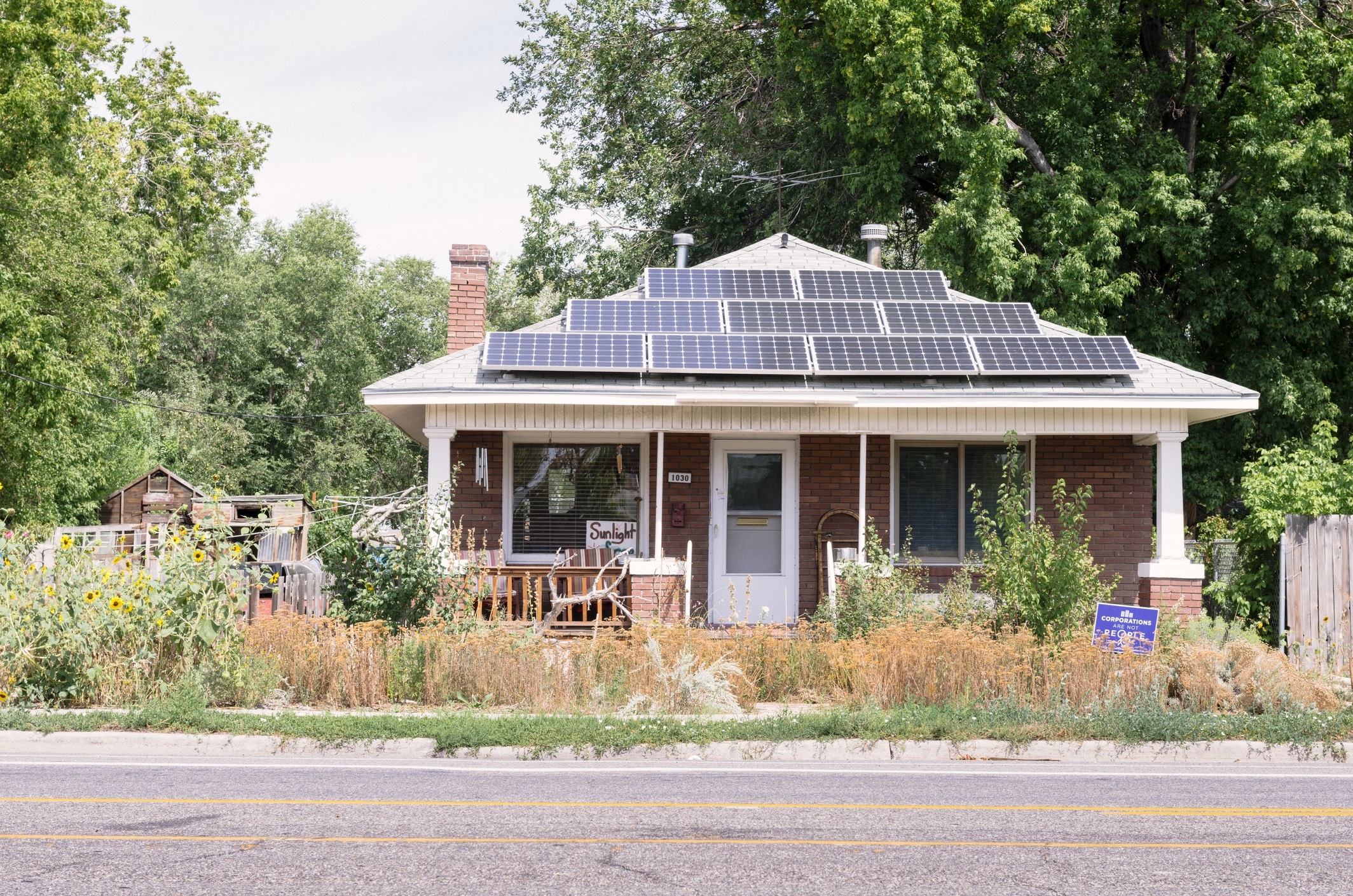RESEARCH AREAS
LOW-INCOME USAGE REDUCTION | BILL PAYMENT ASSISTANCE | RENEWABLE ENERGY PROGRAMS | MARKET TRANSFORMATION
Renewable Energy Programs
The federal government, state governments, utility companies, and non-profit organizations manage renewable energy programs that provide incentives for installation of these systems. The aim of these programs is to increase the percentage of energy that is produced through renewable resources, transform the marketplace for clean energy, increase affordability of energy bills for low-income households, provide job training opportunities, and achieve other non-energy benefits. APPRISE’s research and evaluation assesses the efficiency and effectiveness of these renewable energy programs. See below for a sampling of APPRISE’s research and evaluation in this research area.
Renewable Energy Program Evaluation Activities
Needs Assessment includes analysis of program data, customer data, and publicly available data. These analyses provide information on the number of customers who are eligible for the program, the energy usage of eligible customers, and the potential emissions reductions from the program.
Technical Assistance includes reviews of program models and research results that may inform program design, development of budgeting and planning spreadsheets, and recommendations for data needed for comprehensive program evaluation.
Process Evaluation includes review of program documents; interviews with program staff, administrators, installers, and other stakeholders; analysis of installation data; and review of quality control reports.
Impact Evaluation includes analysis of program, usage, and billing data to estimate the impact of renewable installations on energy production, energy usage, energy costs, and energy affordability. Impact analysis utilizes techniques including data attrition analysis, weather normalization, and comparison groups to provide robust assessments of program impacts.
Non-Energy Impact Analysis includes assessment of the program’s impact on the economy, job opportunities, emissions, community awareness of renewable energy opportunities, and reliability of the electric distribution system.
Survey Research includes telephone and mail surveys of program participants and installers. The participant surveys assess customer understanding of program services and benefits, barriers to program participation, impact on energy costs, satisfaction with the installer, and program satisfaction. Installation contractor surveys measure contractor understanding of program procedures, adherence to program procedures, and barriers to successful program implementation.
Data Tracking includes analysis of data needed for program management, operations, and evaluation; reviews of existing data systems and how they facilitate the program; and recommendations for data tracking enhancements. Program managers need to understand program accomplishments compared to goals, aggregate program expenditures and expenditures per installation, and production projections compared to goals. Program implementers need to report information on installations and participants. Evaluators need system installation data, participant data, and production data.
Performance Measurement includes development and measurement of indices that correspond to program goals and objectives. For example, the indices may include percent of incentives delivered to targeted populations, cost per kW installed, jobs created, and reduction in emissions.
APPRISE Renewable Energy Program Research and Evaluation
Below we provide examples of our renewable energy program research and evaluation projects. Click the tabs below to learn more about these projects, or click here for a full list of projects in this topic area.
APPRISE conducted an evaluation of the Illinois Solar for All Program which brings photovoltaic power to low-income and environmental justice communities throughout Illinois and creates a long-term, low-income solar marketplace.
The ILSFA Program has four key components.
- Low-Income Distributed Generation: Single- and multi-family residential properties occupied by low-income households can receive incentives for new solar generation systems.
- Low-Income Community Solar: Low-income owners and renters can buy or lease a share of the solar system and receive credits on their utility bills for the energy produced by their share of the system.
- Incentives for Non-Profits and Public Facilities: Non-profit organizations and public entities within environmental justice communities or low-income communities can receive incentives for new solar generation systems.
- Low-Income Community Solar Pilot Projects: Projects with community partnerships and ownership will be awarded based on a competitive procurement approach.
The evaluation included analysis of community outreach, system cost and production, environmental and economic benefits, impacts on participants’ energy costs and burden, job training, and system reliability.
APPRISE conducted an evaluation of California’s Single-Family Affordable Solar Homes and Multi-Family Affordable Solar Homes programs. The programs provide solar incentives to customers of three investor-owned utilities in California. The programs aim to stimulate the adoption of solar power in affordable housing, improve the quality of affordable housing, increase energy affordability for low-income households, and increase awareness and knowledge of the benefits of solar power among affordable housing occupants and developers. As a subcontractor in this research, APPRISE conducted interviews with the program administrators and conducted surveys with participating homeowners, participating building managers, and nonparticipating building managers.
APPRISE conducted a comprehensive review of the District of Columbia’s LIHEAP benefit determination procedures and researched strategies for integrating solar benefits with its LIHEAP program. The study included assessing energy burden among LIHEAP recipients using energy bill data collected for the LIHEAP Performance Measures, conducting pilot research on energy burden for LIHEAP recipients with heating costs included in their rent, and developing an alternative benefit structure that accounts for energy burden while optimizing outcomes across low-income programs offered in the District of Columbia.
In 2016, the Renewable Portfolio Standard Expansion Act established the District of Columbia’s Solar for All Program to provide the benefits of solar electricity to 100,000 low-income households, and to reduce their electric bills by 50 percent. The program has funded grantees with the goal of testing strategies to expand solar energy, providing benefits to low-income residents, developing solutions to program challenges, and identifying strategies for long-term program development. These projects take a variety of approaches to generating solar and for providing benefits to low-income households.
- Community Solar Subscriptions: Grantees receive funding to install solar systems on a plot of land. Low-income households subscribe at no cost to receive a share of the electricity generated through virtual net metering credits.
- Direct Solar Installations: Grantees install solar panels on rooftops of low-income households. Panels are sized to produce 50 percent of the household’s electricity at no cost to them. Low-income households receive direct net metering credits to reduce their electric bill.
- Solar Renewable Energy Certificates (SREC): Grantees can sell SRECs on the open market for every megawatt-hour of electricity generated from solar energy and use those revenues to pay benefits to low-income households.
- Combined Benefits: Through DOEE’s Solar for All Innovation and Expansion Grants, some grantees use more than one method to issue benefits to low-income participants.
APPRISE analyzed the LIHEAP and Solar for All programs to assess opportunities and challenges for coordinating LIHEAP and Solar for All benefits to maximize client outcomes and optimize efficiency in the delivery of services. Based on the findings from that analysis, APPRISE developed a number of options for consideration.
APPRISE designed and implemented a survey to assist a utility considering implementation of a solar financing program and potential on-bill financing methods. A random sample of general residential customers and a random sample of customers who had previously expressed interest in solar photovoltaic panels were included. The survey assessed customers’ interest in installing solar panels and their preference among various financing options. While about half of the general sample and over 90 percent of the solar interest sample had considered installing solar, they were most likely to report that they had not moved forward because of the cost. A majority of the general sample and more than three quarters of the solar interest sample said that they would consider on-bill financing for a system if it was offered by the utility.
NYSERDA conducted a study to develop estimates of project costs associated with installing solar photovoltaic (PV) systems in New York State. The purpose of the survey was to obtain reliable estimates of solar balance-of-system (BOS) costs, which include all project costs associated with solar project development and system installation excluding the costs for solar equipment and hardware. APPRISE was responsible for survey research to obtain detailed and reliable cost information from solar installation companies that operated and installed residential and roof-mounted commercial solar PV systems in New York State. The survey included questions on average project costs by geographic area, including average permitting fees, labor costs, inspection costs, and customer acquisition costs. APPRISE developed the web-based survey instrument, tested the survey instrument and user interface, conducted the survey, and reviewed and processed the survey data for analysis. The survey results provided NYSERDA with important information to assess the impact of specific solar project cost components and to serve as a baseline for future measurements of solar project costs.

